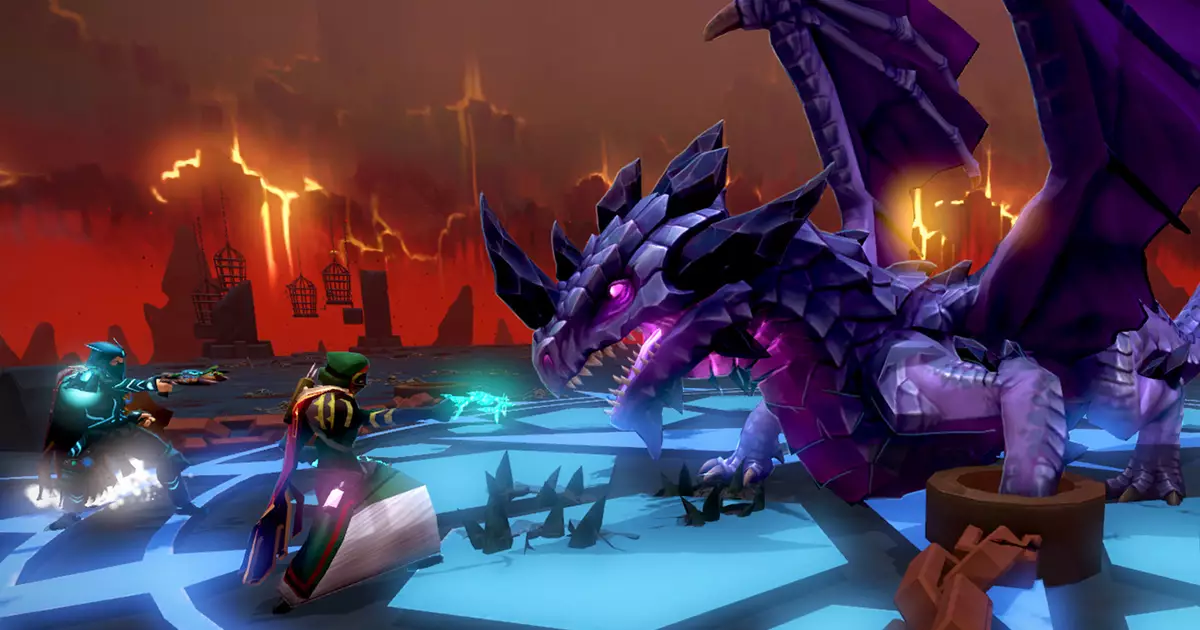Jagex, the veteran fantasy MMO developers of RuneScape, recently made headlines with their acquisition by an unexpected owner. The private equity firm that now holds the reins is none other than the well-known company responsible for major sports brands such as Six Nations Rugby, LaLiga, Ligue de Football, and the Women’s Tennis Association. The deal, which reportedly closed at nearly a billion pounds, has left many in the gaming community intrigued and curious about the potential implications of this surprising acquisition.
Jagex has confirmed their sale to CVC Capital Partners, a private equity firm boasting a portfolio worth approximately €188 billion. Alongside CVC Capital Partners, another investor involved in the acquisition is Haveli Investments, which has previously invested in prominent studios like Behaviour Interactive, the creators of the popular game Dead by Daylight. This sale comes after reports last year that Jagex’s previous owners, The Carlyle Group, were considering selling the Cambridge-based studio. However, this acquisition is not the only change in ownership that Jagex has experienced in recent years. Prior to The Carlyle Group, Jagex briefly passed through the hands of US global management company Macarthur Fortune Holding. Furthermore, the studio was owned by a combination of Chinese and US investors over the course of eight years. Celebrating their 25th anniversary this year, Jagex’s journey to this point has certainly been eventful.
While Jagex has developed and published numerous games over the years, none have achieved the same level of success as their flagship MMO, RuneScape. Launched in 2001, RuneScape has seen various iterations, including the development of Old School RuneScape, and has even ventured into the realm of board games and tabletop RPGs. According to Jagex, RuneScape has generated over $1.5 billion in revenue throughout its lifetime, with record numbers of subscribers in the past year. As for acquisitions on Jagex’s part, they have made notable moves in recent years, acquiring Pipeworks Studios and Gamepires, the developers of the multiplayer survival game Scum. Although Scum has been in early access since 2018, a full release is planned for later this year, originally scheduled for 2021.
The specifics of the recent acquisition deal were not disclosed by Jagex, CVC, or Haveli. However, according to Sky News, the studio’s price tag was rumored to be set at a staggering £900 million. In official statements, the companies have touted the acquisition as a mutually beneficial move that will enhance the gaming experiences for Jagex’s loyal community. Jagex CEO Phil Mansell expressed his enthusiasm, stating that the acquisition “will help Jagex build on our portfolio of forever games, furthering our aims of supporting and growing our community of forever fans. Together we’ll create more of the experiences our fans love, innovate to empower our players further, and build new forever games that capture imaginations.”
Despite the optimistic outlook presented by the parties involved, it is hard not to feel a sense of apprehension considering the current landscape of the gaming industry. The ever-increasing trend of acquisitions by multinational conglomerates has led to speculation and concern among gamers worldwide. With Jagex employing approximately 700 individuals across the globe, the potential impact of this acquisition on the studio’s future endeavors and the gaming community at large remains uncertain.
As Jagex embarks on this new chapter, it is essential to closely monitor the moves made by both the studio and their new owners, CVC Capital Partners and Haveli Investments. Only time will tell if this acquisition will pave the way for even greater success and innovation or if it will introduce new challenges and obstacles along the path for Jagex. The gaming community waits with bated breath to see what the future holds for RuneScape and the other projects under Jagex’s banner.


Leave a Reply